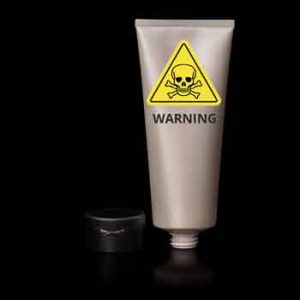
More evidence that low-calorie sweeteners are bad for your health
Studies show that artificial sweeteners can raise the risk of hypertension, metabolic syndrome, type 2 diabetes and heart disease, including stroke.

It’s a toxic world out there.
We are surrounded daily by chemicals in our food, in our water, and in our air. We know these chemicals can be harmful to health. We know they constitute a kind of ‘cocktail’ that can be more potent than the sum of each individual chemical exposure.
Scientists and health advocates have repeatedly asked government regulators to take action to protect us from these toxic chemicals – many of which still don’t have complete safety data. Yet, in the grand scheme of things, precious little is being done.
So what can you do it you want to avoid exposure?
Faced with the reality of so many chemical exposures on a daily basis you may feel as if there is precious little you can do to protect yourself. But recent evidence suggests that we do have the power to reduce our own exposure to harmful chemicals.
3-day detox
Scientists writing in the journal Environmental Health Perspectives report the results of a test with 100 teenage girls who were asked to restrict their use of personal care products containing endocrine disrupting chemicals (EDCs) for just 3 days.
EDCs such as phthalates, triclosan, parabens and benzophenones are all known to be estrogenic, with potential links to breast cancer, to reproductive disorders and other health problems.
The girls were given products which, according to their labels, did not contain these known hormone disrupting ingredients and were asked to use these products exclusively for 3 days, rather than their usual products. Urine samples were analysed before and after the 3 day intervention.
The researchers found urinary concentrations of nearly all EDCs from personal care products were reduced significantly. Breakdown products of diethyl phthalate (commonly used in fragrances) decreased by 27%, triclosan (used in antibacterial soaps and toothpaste) and benzophenone-3 (found in UV sunscreens and face creams) fell by 36% and methyl and propyl paraben levels (found in virtually all conventional cosmetics) decreased by around 44%.
Consider that studies show your skin can absorb up to 60% of anything you put on it and some estimates suggest women absorb around 2kg of chemicals through toiletries and cosmetics every year. This is why some toxicologists believe that the skin can be a more significant gateway for toxins into the body than what we eat.
And of course these chemicals aren’t just in your personal care products. They are in your household cleaners too. It would be interesting to see the results of a study where people avoided toxic household products (like air fresheners and scented laundry products) as well as cosmetics.
Lowering pesticide exposure
Amazingly this was the first study to show that selecting ‘clean’ personal care products can reduce your exposure to EDCs. But it’s not the only study to show that avoiding chemicals can reduce your body burden.
Last year Coop, Sweden’s largest grocery store cooperative, commissioned the Swedish Environmental Research Institute (IVL) to find out whether switching to an all-organic diet could reduce the level of pesticides found in people’s bodies.
Over a two week period, the Palmberg family – parents Anette and Mats and their children Vendela, Evelina and Charlie – swapped their conventional diet for an organic one. Daily urine tests revealed that at the end of that period almost all traces of pesticides were out of their bodies.
Levels of extremely harmful chemicals such as atrazine, 2,4-D, chlorpyrifos, 2-methyl-4-chlorophenoxyacetic acid (MPCA), ethylenebisdithiocarbamates, pyrethroids, chlormequat chloride (CCC) and mepequat had nearly vanished. It’s a testament to how our bodies can heal themselves given the right conditions and particularlly good news for children whose bodies are exposed to more of these chemicals per kg of body weight than adults – and whose health can be irreparably harmed by them.
Making choices
The results of these studies show that what we put on our bodies is as important as what we put in them. They also show that we are not helpless. We do have the power to significantly reduce our exposure to toxic chemicals and, in so doing, to protect our health and that of our families.
Given this, choosing organic products and foods is not simply a luxury it a vital step that each of us can take to reclaim our health. And while some people complain that organic can be more expensive than other types of products (a trend that is changing), it’s worth weighing the sky-high costs of treating poor health in the future against an investment in clean cosmetic and clean foods today.
We’re not helpless, but we do sometimes have complex choices to make, choices that demand we change old habits and beliefs. Weighing up the evidence, I know which path I would rather choose.
Pat Thomas, Editor

Please subscribe me to your newsletter mailing list. I have read the
privacy statement